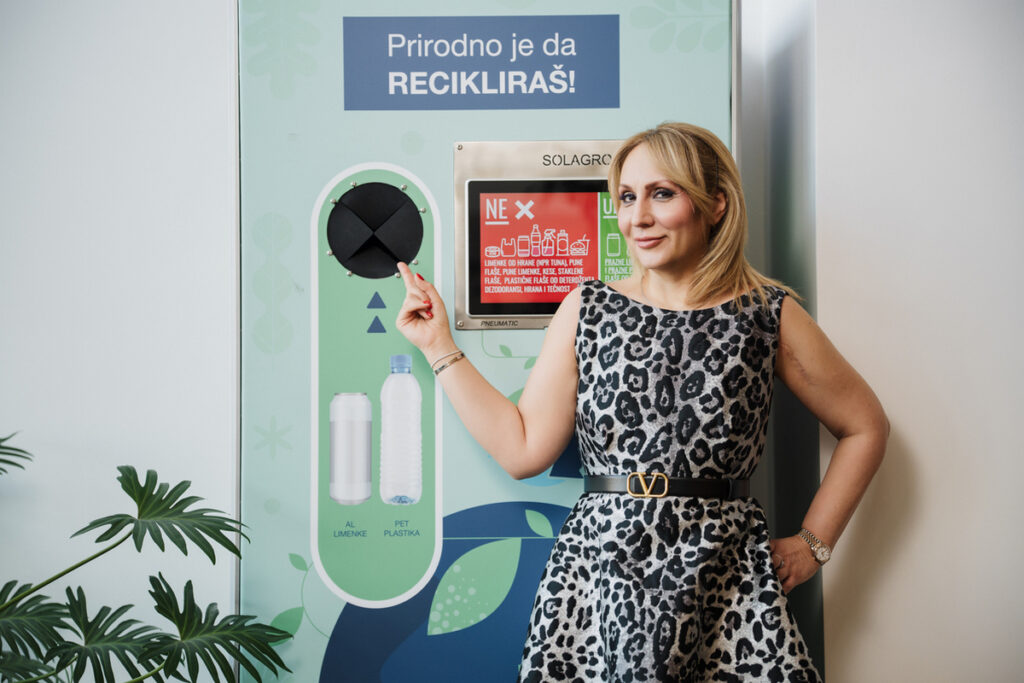On challenges, milestones, and the road towards a circular economy

Violeta Belanović
General Director of Sekopak
Violeta Belanović, General Director of Sekopak, speaks about the key challenges, benefits, and the future of packaging waste management in Serbia. This interview was conducted for Diplomacy & Commerce magazine, with Sekopak as our partner and one of the sponsors of our well-known Serbia Goes Green conference.
What are the biggest challenges in packaging waste management and recycling in Serbia?
The packaging waste management system in Serbia has made significant progress since 2010, when only 5% of packaging waste was recycled, to today’s 67%. More than one million tonnes of recycled packaging waste is the result of our long-term systemic approach and cooperation with industry, local authorities, and citizens across Serbia. However, serious challenges remain, particularly in the area of municipal packaging waste. While the collection of commercial and industrial waste is well developed, there is still no primary separation in most of the country’s municipal sector. This remains the biggest challenge at present.
We hope that the new legislative framework and the targets set by the Ministry through the Decree on Packaging Waste Reduction Plan 2025–2029 will contribute to improving this segment. In addition, 2027 will be a pivotal turning point. That is when the deposit return system should be introduced, bringing a range of new obligations for industry, operators, local authorities, and public utility companies.
Without a clear division of responsibilities and proper synchronisation of all system participants, we will not be able to achieve the targets ahead of us. Legislative changes and stronger cross-sector cooperation are essential if we are to improve the entire system.
Clear responsibilities are key to reaching our goals
What role do the state, local authorities, producers, and citizens play in creating an efficient packaging waste management system?
An efficient system can only be established if every stakeholder assumes their share of responsibility. Industry and operators, through the concept of extended producer responsibility, already have clearly defined legal obligations – collecting the prescribed quantity of packaging waste, setting up the necessary infrastructure, and educating citizens. Citizens are key partners, as proper sorting within households is the first step towards successful recycling of municipal packaging waste.
On the other hand, local authorities currently have no legal obligation in this process – their involvement depends on their goodwill. This is where one of the biggest challenges lies. Since 2010, Sekopak has been actively cooperating with local governments, installing containers, educating citizens, and supporting public utility companies. Our partners are very interested in recycling, and we help them to establish an efficient system at the local level. When citizens see that a system exists and functions, their environmental awareness is triggered. More and more often, they ask, “Why don’t we have this in our municipality?” This is a clear sign that both interest and willingness are present.
What are the economic and environmental benefits of a sustainable packaging management system?
The environmental benefits are the most important. By properly collecting and recycling packaging, we directly contribute to reducing CO₂ emissions, preserving natural resources, and decreasing pollution of water, air, and soil. This approach protects the environment and builds a sustainable future.
The economic benefits are also significant. Waste that was once a cost has now become a secondary raw material. Recycled materials are returned to the production cycle and used to create new products, contributing to the development of the circular economy, creating new jobs, and stimulating innovation.
How can education and raising public awareness contribute to increased sorting and recycling?
Education is the foundation of every successful system. From the very beginning, Sekopak has invested in educational programmes and campaigns – from working with children in schools to training sessions in companies and digital campaigns. Through our mobile educational platform, the Sekopak Caravan, we have toured cities across Serbia, speaking with thousands of citizens, especially children, and teaching them why recycling matters. When people understand why proper separation is important and have access to the necessary infrastructure (bins, containers, and reverse vending machines), they are ready to participate. Our reverse vending machines, as a digital innovation, further motivate citizens with rewards and engage those who previously lacked the habit of recycling.
Public trust grows when citizens see concrete results because they then know that their efforts have meaning and deliver visible effects. This is why raising awareness is crucial and must be accompanied by infrastructure development.